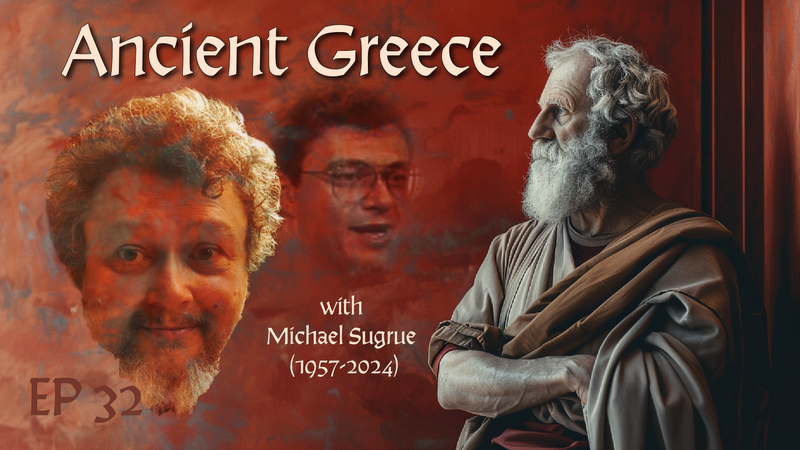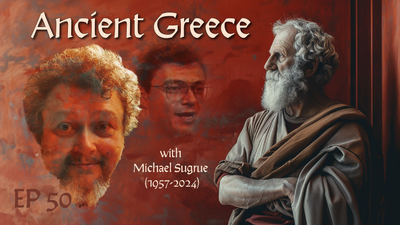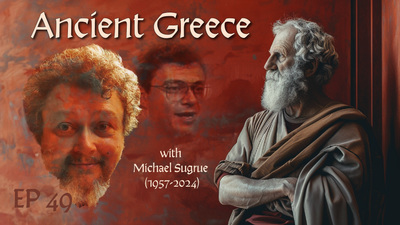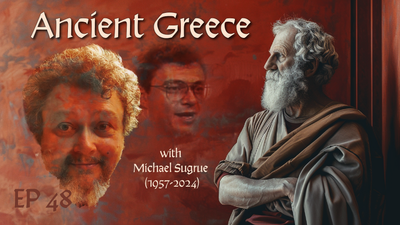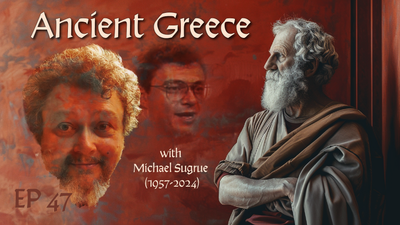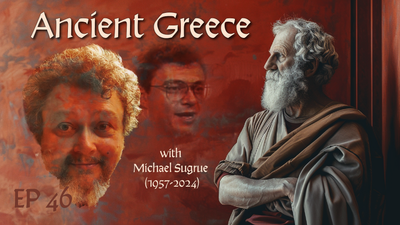Ancient wisdom is a map to navigate today’s fast-changing landscape, and Plato’s insights are especially poignant in guiding our choices and values. His philosophy invites us to reflect on life’s purpose, not merely as an intellectual exercise, but as a practical tool for growth and resilience. Imagine a life where our actions stem from deeply considered principles—a life where values like justice, courage, and prudence are more than abstract ideas but active forces in shaping who we become.
Through Plato Re-Imagined, we aim to make these values accessible and relatable, taking them from the realm of philosophy into the core of our everyday decisions. As we explore this week’s topics, I encourage you to consider how these ancient principles resonate with your life. Could a more profound understanding of prudence, for instance, help you make decisions that align better with your long-term goals? Head over to planksip.org, where the personification of Plato comes to life in discussions that bridge antiquity and the present—a place where we don’t just learn from Plato, but live his ideals.
From the Archives of Ancient Greece: Featuring Dr. Michael Sugrue
In this episode, we bring you insights from Dr. Michael Sugrue, who revisits the question of human connection through the eyes of Plato and Aristotle. While both philosophers recognized relationships as central to a meaningful life, their perspectives reveal crucial distinctions. For Plato, love transcends the ordinary—it is a journey towards the divine, a pursuit of something greater than ourselves. Imagine the mentorship of Socrates guiding one toward wisdom: it’s more than friendship; it’s a shared pursuit of the Good, challenging us to rise above personal interests.
By contrast, Aristotle brings friendship down to earth. For him, friendships arise from shared values and mutual goodwill—a space where we find comfort, support, and camaraderie. Think of that friend who offers advice that may be difficult to hear but ultimately helps you become a better person. This “friend as mirror” idea, deeply rooted in Aristotle’s work, reminds us of the importance of reciprocal relationships. Dr. Sugrue’s analysis helps us see these ancient perspectives not as relics of the past, but as frameworks we can actively choose in our own relationships today. If you’ve ever struggled to understand what type of friendship you need or want, share your reflections on planksip.org and connect with others on how these timeless ideas shape our lives.
Insights from the Dialogues: Quoting Plato
"And what is good, Phaedrus, and what is not good—need we ask anyone to tell us these things?" — Plato, Phaedrus 279c.
In this simple yet profound question, Plato taps into the idea that goodness is intuitive—that it’s something we recognize without needing explicit instructions. When we act out of kindness, truth, or integrity, we’re responding to an inner call, a sense of alignment with the Good. Imagine a moment where you chose to help a stranger or made a sacrifice for a loved one. Such acts aren’t dictated by a manual; they feel right because they resonate with our understanding of what it means to be human.
The power of Plato’s question lies in its suggestion that we each hold the answers within ourselves. However, in our noisy world filled with external pressures, it can be challenging to trust our intuition about what is good. The encouragement here is to quiet the distractions, to reflect, and let those answers surface. We’d love to hear your experiences with this—how do you connect with your own sense of what is good? Join the conversation on planksip.org, where discussions explore not just Plato’s ideals but how they apply in real-life contexts today.
Chance and Fate: Exploring Ancient Games
The ancient game of knucklebones, particularly the fabled Venus throw, was more than a pastime; it was a metaphor for life’s unpredictability. Rolling the dice to achieve the “perfect” throw symbolized our desire to control fate while acknowledging forces beyond our command. In our lives today, we still wrestle with this balance. We plan meticulously, yet chance often plays a role in our outcomes. Think about a time when an unexpected opportunity reshaped your path or a moment when all the planning in the world couldn’t prepare you for what happened.
Explore the Mystical World of Astraguli: Ancient Games of Chance with Cultural Significance.
Like the ancient Greeks, we sometimes need to embrace uncertainty and accept that we can’t control everything. This doesn’t mean we stop striving, but rather that we develop the resilience to adapt when things don’t go as planned. Head over to planksip.org and share how you navigate these moments of chance and choice. Do you believe in “lucky breaks” or see every twist as a new challenge? Your experiences and insights are valuable as we explore the philosophical implications of fate and free will together.
Virtues Revisited: Practical Lessons for Today
Prudence, often viewed as merely caution, is in fact the wisdom to act with foresight and deliberation. Plato considered prudence a cornerstone of ethical living, and its relevance has only grown in today’s world, where hasty decisions are commonplace. Consider the example of someone who, tempted by immediate gratification, spends impulsively versus the prudent individual who saves and invests wisely. In the end, prudence shapes their future in vastly different ways, underscoring the power of thoughtful choices over fleeting impulses.
But prudence isn’t just about finances—it applies to relationships, health, and career. Imagine if, before making a big decision, you paused to weigh not just the immediate benefits but the long-term impact on your values and well-being. This habit, this virtue, of prudence can transform our lives by aligning our actions with our highest goals. On planksip.org, share a moment when prudence served you well, or perhaps when the lack of it led to a lesson learned. By exploring these shared experiences, we create a living dialogue that reflects Plato’s ideals.
Engage with Us: Reader’s Corner
The conversation around prudence, chance, and the Good isn’t limited to ancient philosophy—it’s an ongoing dialogue we can all contribute to. Have you ever found yourself faced with a choice between what’s easy and what’s right? Have you made decisions that seemed risky but proved beneficial in unexpected ways? We’d love to hear about it, and we welcome you to share your story on planksip.org. Selected reflections will be featured in the next newsletter, helping us learn from each other’s experiences and continue Plato’s legacy of questioning, learning, and growing together.
Closing Reflection: Socrates’ Enduring Legacy
Socrates famously said, “The unexamined life is not worth living.” This reflection is a call to dig deeper, to see beyond the surface of our daily routines and consider what truly gives our lives meaning. In every question he asked, Socrates reminded his listeners—and us—to seek truth over comfort, to embrace self-knowledge over complacency. Today, in a world that often prioritizes productivity over purpose, Socrates’ legacy calls us back to that enduring wisdom: true fulfillment comes from understanding ourselves.
If there’s one thing we can take from this journey through Plato’s and Socrates’ teachings, it’s that philosophy isn’t merely an academic pursuit but a practical way to engage with life’s deepest questions. Whether through prudence, chance, or the pursuit of the Good, let’s commit to a life examined, a life lived intentionally. Thank you for joining us on this journey through ancient wisdom. We invite you to continue the conversation on planksip.org, where the personification of Plato lives on as an ideal worth imagining and pursuing.

Plato Re-Imagined
This course offers 32 comprehensive lectures exploring most of Plato's dialogues. These lectures guide students toward a consilient understanding of the divine—a concept that harmonizes knowledge across disciplines and resonates with secular and religious leaders. As a bonus, Lecture #33 focuses on consilience, demonstrating how different fields of knowledge can converge to form a unified understanding.

